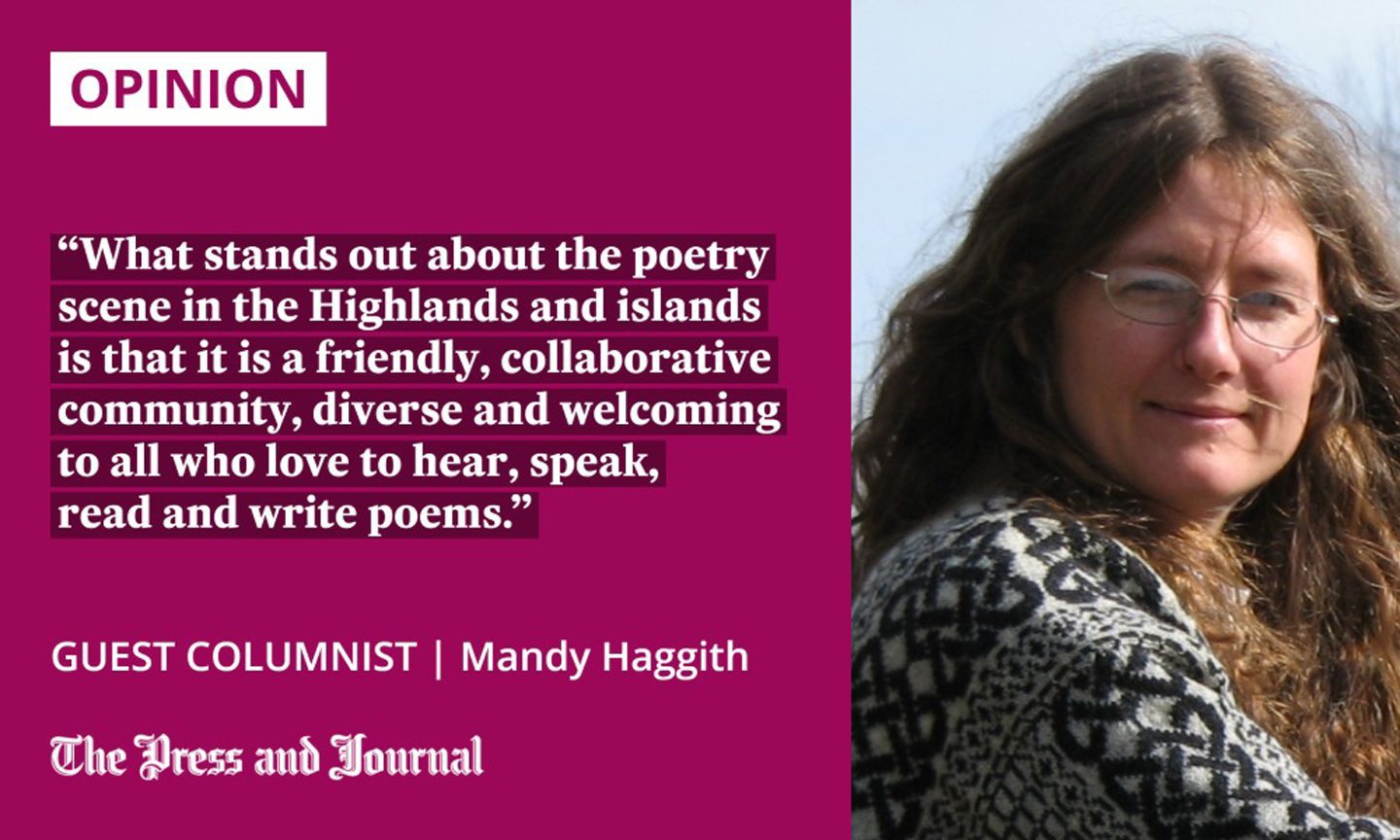We really need to assert the significance of poetry in and from the north of Scotland, writes Mandy Haggith of UHI Inverness.
On March 21, World Poetry Day, all around the planet people celebrate the value of poems: concise, carefully-made purses of language, containing a mixed currency of feeling and thought.
On that day, we really need to assert the significance of poetry in and from the north of Scotland. Our tradition of poetry is rich, from the bardic and skaldic poetry of the past to the wealth of contemporary talent in Gaelic, Scots, English and other languages.
I’m not going to name any names because what stands out about the poetry scene in the Highlands and islands is that it is a friendly, collaborative community, diverse and welcoming to all who love to hear, speak, read and write poems.

During Covid lockdowns, cultural events went online and, suddenly, the world’s poetry was available to us all, regardless of our physical geography. Poets in our region could take part in poetry events as never before.
However, as things have returned to “normal”, our community finds itself distanced from the poetry hubs in the Central Belt of Scotland and beyond. Yet, many poets here want to continue to meet online, so a series of conversations is happening at 5pm on the last Monday of each month on Microsoft Teams, focused on establishing a Scottish Highlands and Islands Poetry Society to keep our community flourishing. Everyone is welcome.
Poetry is an important tool
The discussions so far have highlighted the very many local groups, festivals and organisations which support poetry. We’ve also explored how the many experienced and “becoming” poets can nurture poetry in the region.
The University of the Highlands and Islands has a key role to play. We already have poetry reading and writing courses, and we’re keen to build more learning opportunities.
On World Poetry Day, I’ll be celebrating the fact that poetry is not just a fun thing: it’s also a serious research tool. I use “poetic inquiry” as a method for investigating how people feel and think about difficult issues.
My latest project is asking how coastal communities are facing the future effects of climate change. Poetry is perfect for this, because we need to both think imaginatively and to face up to the fears, hopes and other emotions that drive how we act in response to this huge environmental threat.
I’ll also be launching my new book of sea poems, Briny, online. All are welcome to come along, read a sea poem – your own, or a favourite by someone else. If you’d like to join in, please get in touch. “Sea” you there!
- For more information about the Scottish Highlands and Islands Poetry Society or the Lunch of Briny, email mandy.haggith.ic@uhi.ac.uk
Mandy Haggith is a lecturer in creative writing and literature at UHI Inverness


Conversation